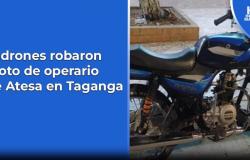
Local authorities participated in the activity, which brought together more than 200 companies, including the presidential delegate, Daniel Quinteros; the MINVU seremi, Diego Rebolledo; and the MOP seremi, Juan Papic. In addition, the participation of CChC leaders, such as the regional president, Iván Berrios, the president of the Specialties Committee, Héctor Hidalgo; the vice-chairman of the Committee, Andrew Trench; and the president of Specialties Tarapacá, Pamela Arancibia.
In his welcome speech, the president of the Specialties Committee, Héctor Hidalgo highlighted the technical prominence of the specialists. “Today, we mark the beginning of the sixth edition of this meeting, which has been a fundamental pillar in our industry and has contributed significantly to the technical and professional development of our union. Throughout its previous editions, it has strengthened the technical role of the Specialties Committee, both inside and outside the Chamber, consolidating itself as a space where specialists can meet to collaborate, learn and grow together.
For his part, the national vice president of the CChC Claudio Cerda highlighted the call for the event, in addition to the important role that specialists play for the sector. “Collaboration between industry participants is essential to generate ideas and proposals that improve productivity. If this integration is also early, the works can be completed on time, with costs controlled and even with improvements.”
The first day of work was marked by different presentations, one of them was that of Martín Andrade, executive director of Corporación Ciudades where he explained the project “City Vision: Iquique – Alto Hospicio, the city we want.”
This project seeks to promote, coordinate and agree on an integrated view of the territory in the medium and long term to improve urban quality for the benefit of the inhabitants. “Last year we developed a City Agreement process here and it not only allowed us to dream, but also to be very specific in the works and initiatives that are fundamental for the future development of this city, to be able to move forward in a comprehensive manner. Not only with new vehicle routes, but also with parks, with services, with quality housing and being able to agree on projects and a design of projects that we want to develop,” mentioned Martín Andrade.
The main talk was given by the company Sacyr, which presented the construction process of the Alto Hospicio Hospital as an example of specialties integrated into a project with a strong impact on the community.
One of the main challenges they faced in the construction process was the type of soil, which forced them to carry out additional studies to carry out the excavations, solve the waterproofing and avoid damage to the land.
“We had to start making special solutions, for example installing systems that would take the water out of the building, out of the land. With the architecture we also had to coordinate with the landscaping. Try to limit it as much as possible so that it has low energy consumption of water,” Castro highlighted.
For his part, Andrew Trench, vice president of the Specialties Committee and president of the 2024 National Specialties Meeting, highlighted that this sixth version emphasized the early integration of different specialties to reduce the risks of a project, making them viable and successful: “Having “We must integrate early into all projects to obtain good results with this view of the future, that is a fundamental part of the life cycle and value of the projects that reach construction.”
Local authorities also valued the meeting, among them the presidential delegate of the Tarapacá Region, Daniel Quinteros. “Today we have come together with the Seremi of Public Works, also of Housing and Urban Planning, because we understand the need to build not only a new country, but also to build it through agreements, which allow us to advance in the emergencies that it has. the citizenship”.





